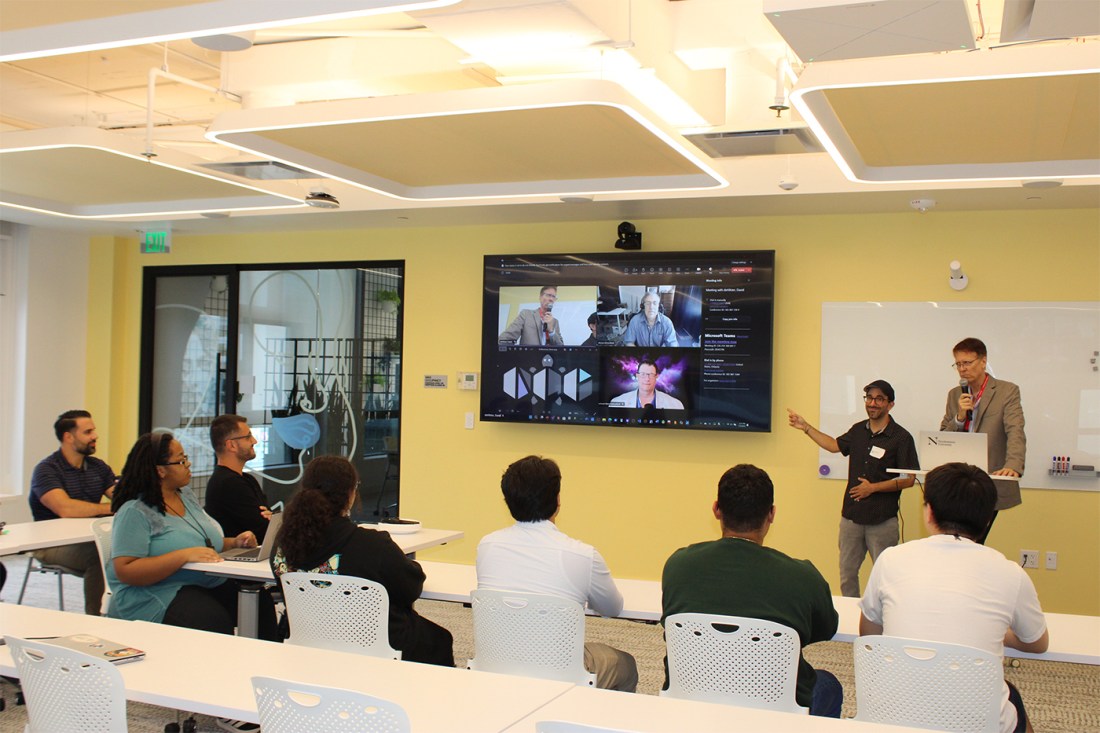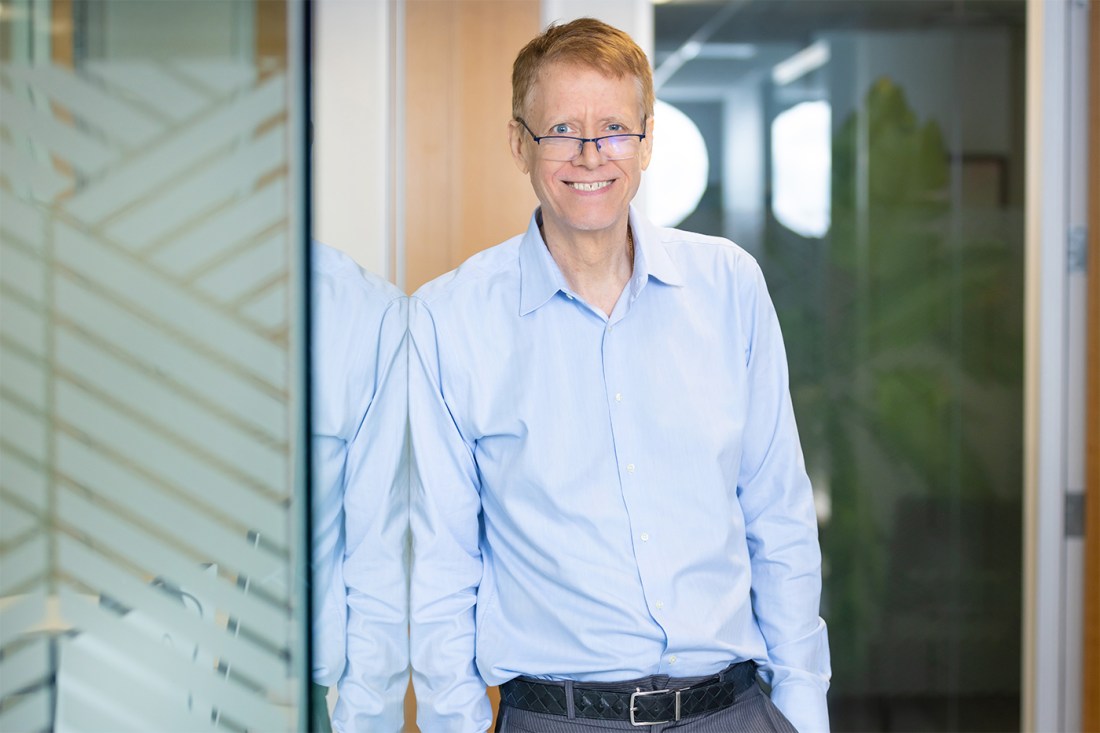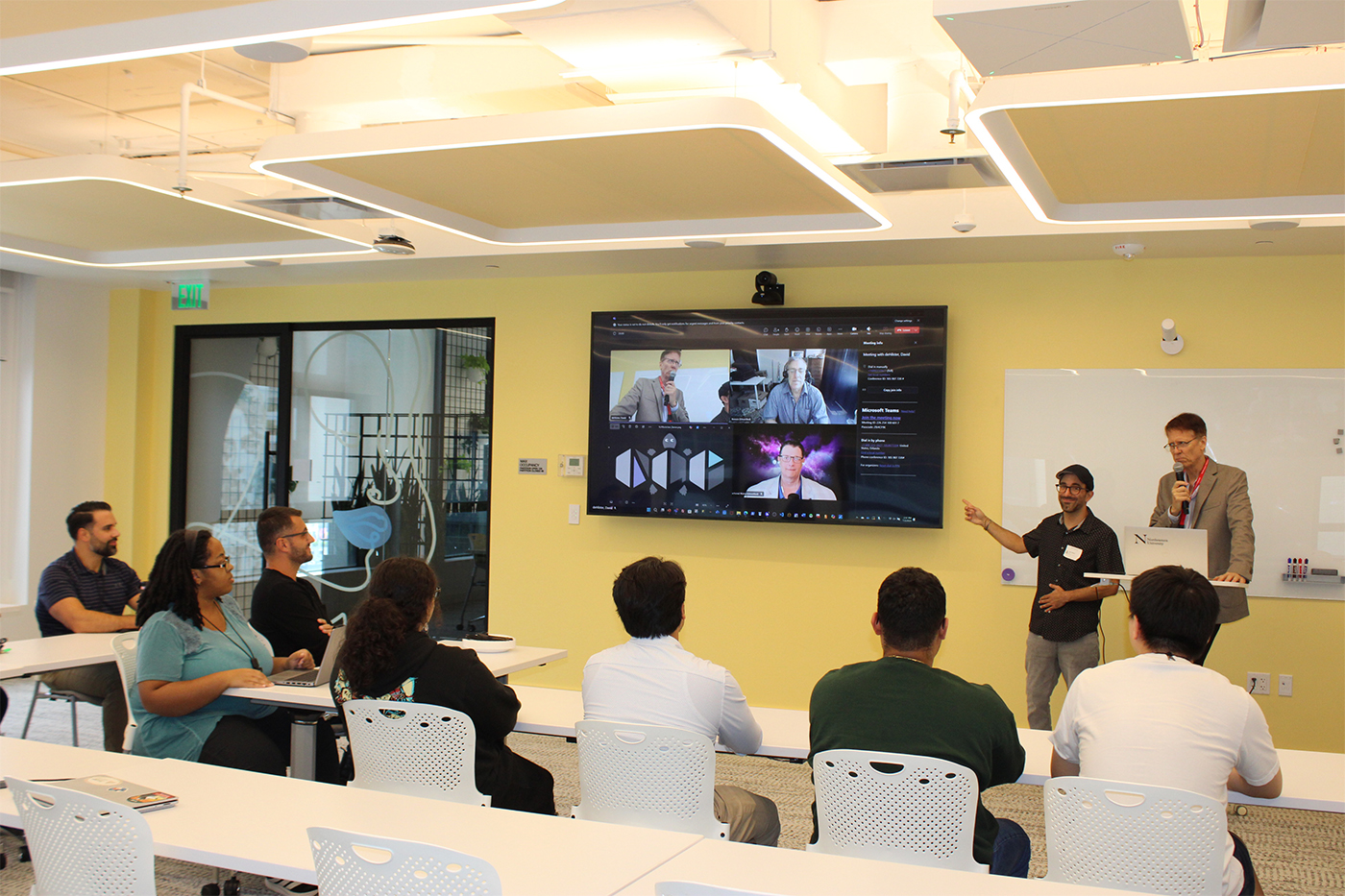The hope is to create an AI ecosystem driven not by statistical guesswork, but by logic, rules, and transparency, says David de Hilster, a professor in Northeastern’s College of Engineering.

This fall, students at Northeastern University’s Miami campus will have the opportunity to join a new club with an ambitious mission: to design and build decentralized AI systems using the blockchain and a programming language called NLP++.
The club — open to all students — is being launched by David de Hilster, an engineering professor and longtime computer language developer. It will serve as a collaborative hub for students interested in AI, language, and distributed systems, and will be tasked with creating the foundational framework to integrate de Hilster’s logic-based programming language into the blockchain.
The hope is to create an AI ecosystem driven not by statistical guesswork, but by logic, rules, and transparency, he says.
“The goal is to create an open, decentralized ecosystem for developing, maintaining and using linguistic resources — for every human language and topic domain,” de Hilster says. “Without the blockchain, NLP++ is a standalone programming language. With the blockchain, NLP++ becomes replete with dictionaries, knowledge and algorithms that perform at human level and in a trustworthy manner.”
A product of the modern web, a blockchain is a decentralized and distributed ledger that stores records of transactions across a cluster of computer systems. Cryptocurrencies such as bitcoin and Ethereum are built on the blockchain.
Twenty-five years ago, de Hilster set out to develop a method for computers to analyze and interpret text the same way that humans think. The result was Natural Language Processing ++, or NLP++, a computer programming language he co-developed.

He says it could one day be used to create digital assistants that use logic and rule-based thinking to answer questions — a notable departure from the probability-based technologies that power today’s popular chatbots like ChatGPT, Gemini and Claude.
While NLP++ may provide the foundation, equally important is the data needed to create those AI-based systems. But high-quality data collection can be hard, especially if done manually, collaboratively and transparently — which is where the blockchain comes in.
One of the blockchain’s primary advantages, de Hilster says, is that it is not operated or owned by any one private entity. The decentralized nature ensures transparency and allows for open access to all linguistic resources built on the NLP++ platform.
“The idea will be that when we have people writing algorithms to do something — let’s say an intelligent agent for sports — and then write that in NLP++ as part of the blockchain, people can use it,” he says.
Down the line, de Hilster and his team plan to create an NLP coin to financially incentivize contributors to develop and maintain these resources.
While the club will begin designing the system this fall, fully implementing NLP++ into the blockchain will likely take years. But de Hilster believes the payoff could be transformative.
Unlike ChatGPT and similar tools, a digital assistant built with NLP++ would not rely on vast datasets and probabilistic models to generate responses. Instead, it would tap into structured, blockchain-hosted rules and logic — functioning more like a reasoning human than a predictive machine, de Hilster says.
“We want to do trustworthy NLP, and the way you do that is you have to do it like humans — humans do not use probabilities by reading lots of stuff to understand,” de Hilster says. “We have rules. If I give you 100 sentences in English, every person who speaks English could tell me which ones are and which ones aren’t.”
